Life
Sign up for our newsletter
We summarize the week's scientific breakthroughs every Thursday.
-
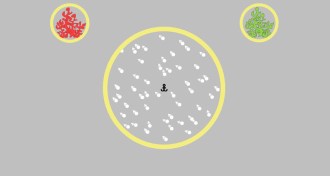 Neuroscience
NeuroscienceChildren with autism excel at motion detection test
Children with autism outperform children without the disorder on a test that requires averaging the movements of lots of dots.
-
 Paleontology
PaleontologyOldest known avian relative of today’s birds found in China
Fossil find suggests modern birds’ oldest avian relative lived about 6 million years before previous record holder.
By Meghan Rosen -
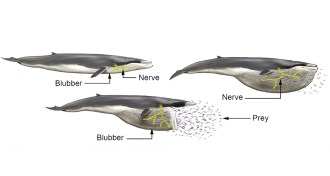 Animals
AnimalsStretchy nerves help some big whales open wide
Blue whales and their closest relatives have stretchy nerves near their mouths so they can open wide and swallow a lot of prey.
-
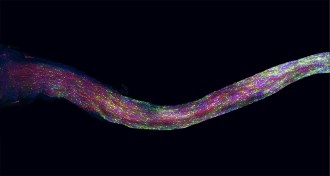 Genetics
Genetics‘Brainbow’ illuminates cellular connections
A mouse’s optic nerve fluoresces in a rainbow of colors. The image offers a detailed look at nerve-protector cells called oligodendrocytes.
-
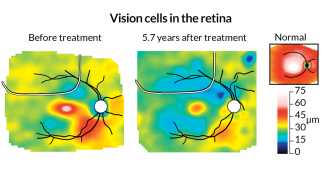 Genetics
GeneticsGene therapy for blindness dims a bit
Gene therapy improves vision temporarily but can’t save sight.
-
 Neuroscience
NeuroscienceZipping to Mars could badly zap brain nerve cells
Charged particles like the ones astronauts might encounter wallop the brain, mouse study suggests.
-
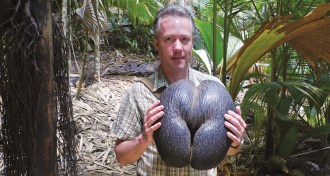 Plants
PlantsHow slow plants make ridiculous seeds
Coco de mer palms scrimp, save and take not quite forever creating the world’s largest seeds.
By Susan Milius -
 Animals
AnimalsLazy sunfish are actually active predators
Ocean sunfish were once thought to be drifting eaters of jellyfish. But they’re not, new research shows.
-
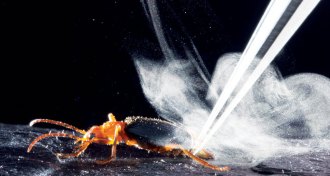 Animals
AnimalsBeetle’s toxic, explosive vapor explained
From a two-chambered gland in their rears, bombardier beetles unleash a toxic, blazing hot spray to defend themselves.
By Beth Mole -
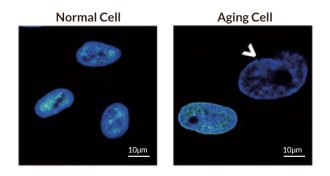 Genetics
GeneticsDNA disorganization linked to aging
Changes in the way that DNA is tightly packed in cells leads to mayhem that promotes the aging process.
-
 Animals
AnimalsClimate change revs up extinction risks
One in six species on the planet may face extinction if the global temperatures continue to rise.
By Beth Mole -
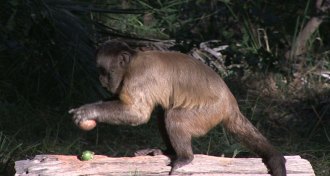 Animals
AnimalsRock-wielding monkeys make adjustments when cracking nuts
Videos show that monkeys carefully pound open nuts to avoid smashing kernels inside.
By Bruce Bower